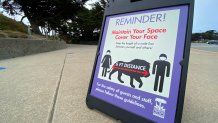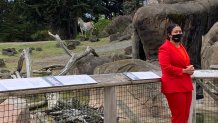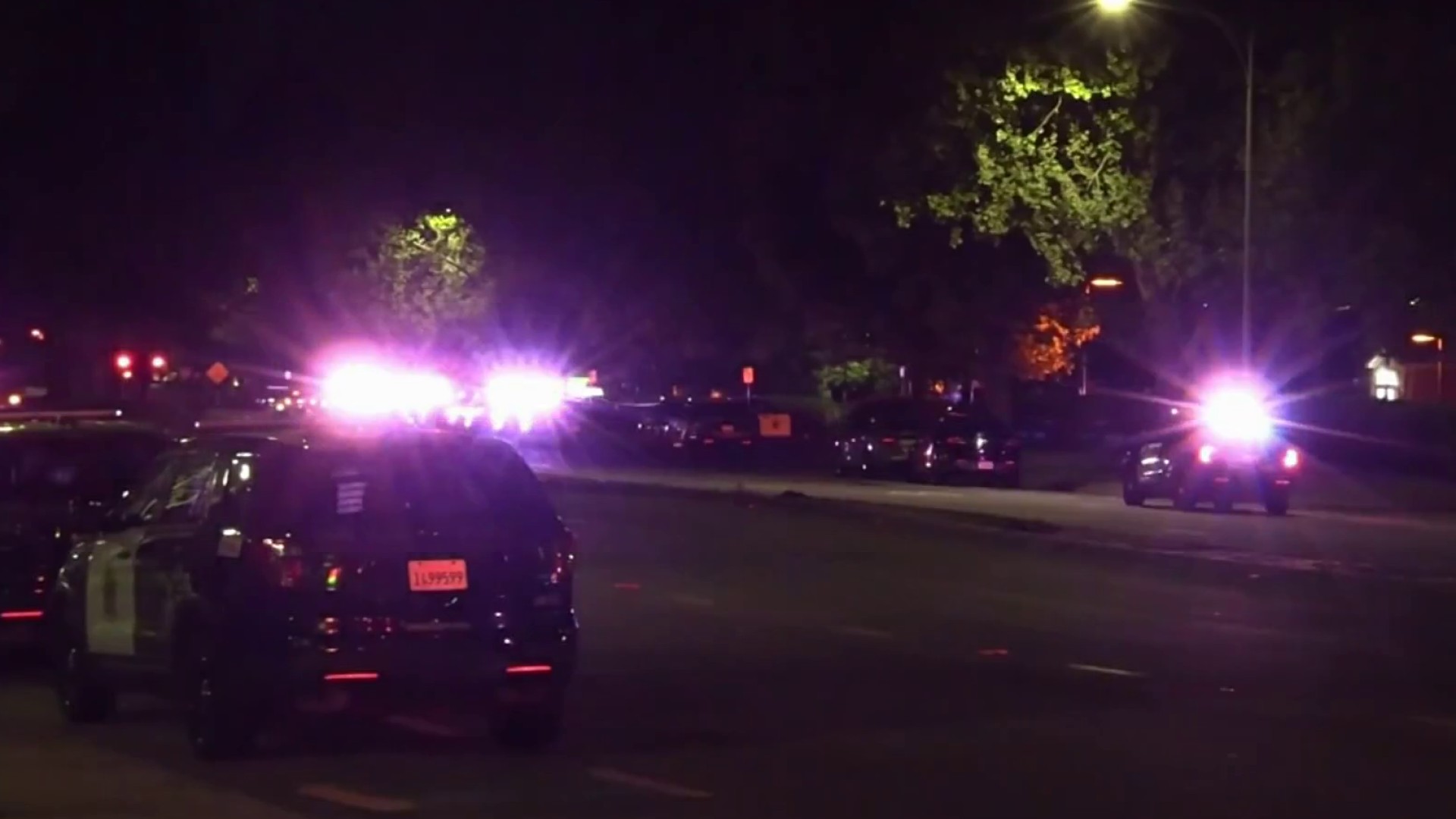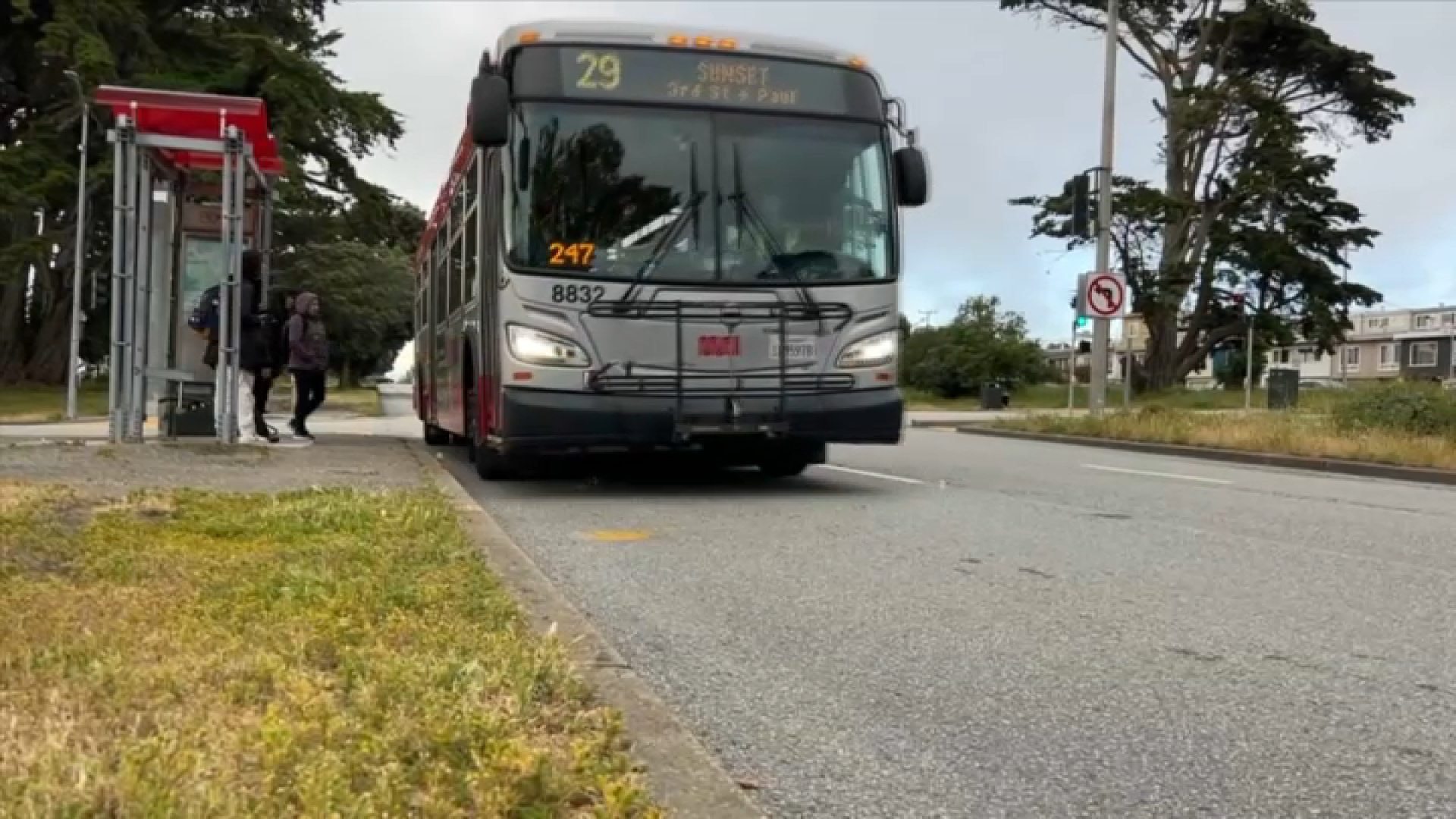In the months without the public on hand because of the pandemic, the animals in the San Francisco Zoo have been acting curious.
A normally nonchalant tiger ducked behind a bush as a visitor approached. Painfully shy orangutans blew kisses to their keepers. The equally shy Asian rhinoceros suddenly began following the zoo's executive director around its pen during her visits.
"We've been noticing some interesting behaviors in some of the animals," said Jason Watters, the zoo's Vice President of Wellness and Animal Behavior.
With the zoo on hiatus since March, there have been no shouts of excited kids, no one tapping on exhibit glass, no one watching the animals' every move -- just the silence sometimes broken by the cries of peacocks, the occasional lemur skirmish and the roar of the nearby Pacific Ocean. The animals -- it seems -- have noted the absence of people.
"They seem to really notice when people are nearby," Watters said, "much more than they do when we're open."
In recent weeks, keepers have observed chimpanzees pressing against their enclosures with their hands raised as if asking 'what had happened to the people?' Penguins flock as anyone nears their pond.
"They've also in a sense," Watters said, "acted as if they maybe missed people."

With the zoo set to reopen to the public next week, zoo officials are anxiously watching to see how the animals will react. To prepare, they've encouraged staff to walk by pens more often and drive golf carts around the 100 acre park to get animals used to people. They've assigned a team of animal behavior researchers who will monitor how the animals react to the reintroduction of people.
Local
"I think we are enrichment for them," said the zoo's executive director Tanya Peterson, "and we provide them curiosity."
On Thursday, Mayor London Breed drew a small crowd of journalists to the park to announce its scheduled reopening next week. It was the biggest pack of humans the animals had encountered in months. The giraffes craned their necks to curiously scope out the visitors and timidly approached as Breed held out a handful of lettuce which they eventually ate out of her hand.

The zoo's reopening will include plenty of Covid-19 era modifications. Visitors will be required to make advanced reservations online to receive a time slot to visit. The zoo will go cashless with no paper tickets. Some trails are closed -- drinking fountains and metal animal sculptures are now covered with blankets to deter the potential spread of the virus.
The park will also add "safety ambassadors" to make sure visitors wear masks and maintain a social distance.
"It's so important that we maintain our distance and wear our masks," Breed said, repeating an oft-repeated mantra to a group of elementary school kids who were part of the zoo's returning summer camp.
The zoo will open Monday to its members, and Wednesday for the general public. But as the animals get used to seeing families and kids in the park again, so will the staff.
"Maybe the saddest thing," Watters said, "is those kids aren't going to be able to see us smile at them through these masks."
For information about the re-reopening and new protocols, click here.



